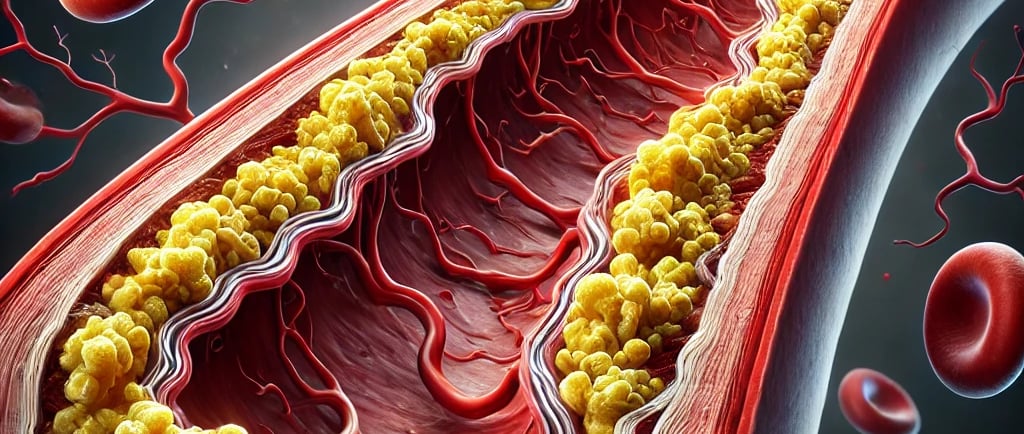Nighttime Leg Symptoms Indicating High Cholesterol
Discover unexpected nighttime symptoms in your legs that may signal high cholesterol. Learn about the health signs of high cholesterol and recognize cholesterol symptoms to take action for better health.
Alok Bains
3/24/20252 min read


Signs of High Cholesterol: What Your Legs Might Be Telling You, especially at night
High cholesterol often goes unnoticed, but it could be affecting your legs in ways you might not expect. Paying attention to your body's subtle cues can help you identify potential health issues before they worsen. Here are some surprising signs in your legs that may indicate high cholesterol and what you can do about them:
Swelling in the Evening
Experiencing swelling in your legs or feet at night could be linked to high cholesterol. This occurs due to improper blood flow in your blood vessels. This leads to fluid accumulation in your legs or feet. Uncomfortable swelling should not be ignored. If this is happening to you, consulting a healthcare professional is essential.
Persistent Cold Feet
Do you often feel like your feet are icy during the night? Cold feet might signal poor blood circulation due to high levels of bad cholesterol, which restricts warm blood flow. Over time, reduced circulation can lead to nerve damage, highlighting the importance of addressing this symptom early.
Appearance of Varicose Veins
Varicose veins are enlarged, twisted veins that may appear blue, black, or dark purple. Weak end valves in the veins can lead to discomfort, heaviness and even complications such as ulcers or blood clots. These issues tend to worsen at night, making it crucial to seek medical advice if varicose veins appear or worsen.
Numbness or Tingling in the legs
A ticklish sensation, cramps, or numbness in your legs during the night could indicate poor circulation, a common side effect of high bad cholesterol. When blood flow is obstructed, the nerves may be deprived of oxygen and nutrients, making it difficult to feel sensations in your legs. Professional consultation and treatment can help you manage this.
Changes in Skin Appearance
Has your skin lost its healthy glow or undergone noticeable discolouration? These changes could stem from inadequate blood flow caused by high bad cholesterol. Nutrient-deficient veins can lead to significant skin alterations. It's advisable to discuss these changes with a doctor.
Final Thoughts: Act Early for Better Health
High cholesterol often goes unnoticed until symptoms become more pronounced. Paying attention to subtle changes in your legs, especially at night, can help detect circulation issues early. If you experience any of these signs, consider consulting a medical professional for proper assessment and guidance on maintaining healthy cholesterol levels. Lifestyle changes, medications, and regular check-ups can help you take control of your bad cholesterol and reduce risks to your health.
Alok Bains
